(This article originally appeared in Ross Thought In Action and has been republished with permission.)
Michigan Ross Professors outline a cost-based evaluation to optimize how private money is used for social ventures.
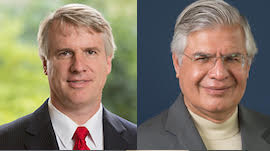
Private money that goes to poverty fighting ventures often does so under a number of catchphrases — patient capital, impact investing, social enterprise, social capital, and others.
But those terms help muddle how these ventures actually work and ultimately hinder poverty alleviation, say Michigan Ross Professors Paul Clyde and Aneel Karnani. It’s an understanding they’d like to clear up, because the prospects of reducing poverty have never been better, thanks in part to private-sector interest.
Their latest research is a way for investors and donors to better understand whether it has to sacrifice some profits in a social venture and, if so, to what extent. They argue this clarity is needed because delivering products and services to the world’s poor often involves a subsidy.
But where that subsidy lies is a key question.
“Most people understand that social entrepreneurship, or whatever term you use, involves some sort of subsidy,” says Karnani, professor of strategy. “But what’s not clear is the extent of it, or what would be the most effective way to subsidize. We take an approach that combines the logic of economics and accounting. Let’s not just throw around phrases.”
Their paper, “Improving Private Sector Impact on Poverty Alleviation: A Cost-Based Taxonomy,” was published in the California Management Review. (Subscription link.)
Ideally, private companies would be able to reduce poverty without sacrificing profits or offering a subsidy. A famous example is mobile phones, where technological advances and innovative business models helped bring those devices to the world’s poor.
But Karnani and Clyde argue this is an exception. Other purely for-profit ventures serving the world’s poor have had trouble reaching scale.
“We’re not taking a position on what donors and investors should or shouldn’t do,” says Clyde, Tom Lantos Professor of Business Administration and president of the William Davidson Institute. “But let’s lay some groundwork to describe what’s really going on. All these buzzwords tend to shove things under the rug, which can lead people to make suboptimal decisions.”
Clyde and Karnani outline four main subsidies common to ventures serving the poor, and the benefits of drawbacks of each:
“Our goal is to help investors and donors clarify the cost structure,” says Karnani. “It applies to donors, investors, policy makers, everyone who talks about social entrepreneurship, which itself is kind of a vague phrase. It’s useful for anyone trying to solve this serious problem. Let’s just be clear about the extent of subsidy.”
Before David Griswold began his Nov. 4 talk that was part of the WDI Global Impact Speaker Series, five words appeared on the screen behind him: “Can questions change the world?”
To watch the 45-minute presentation, click here. To view a one-on-one interview with Griswold and WDI’s Ted London, click here.

Griswold, founder of Sustainable Harvest Coffee, said it was a simple question that changed the course of his career and began his long involvement in the transparent, sustainable coffee business. A Mexican coffee farmer had shown up at Griswold’s office in Mexico City. Griswold was a volunteer for the National Coordinating Body for Coffee Farmer Cooperatives and the farmer said he and others from his region couldn’t sell their coffee.
“Can you help us?” the farmer asked.
That question “gave me my answer for what I would do for the rest of my life,” Griswold said.
This is the second time Griswold has been a featured guest of WDI’s speaker series. He also spoke in 2013. In addition to his talk, Griswold also was a guest lecturer for an MBA class at U-M’s Ross School of Business taught by WDI Senior Fellow Ted London on business strategies for the base of the pyramid.
Sustainable Harvest also sponsored a student MBA team from Ross that was organized by WDI. For the project, the student team traveled to Rwanda to conduct an in-depth market analysis of coffee consumption and potential coffee retail channels including hotels, restaurants, and ecotourism. The team then used the market analysis to develop a business plan for the cafe and wholesale operation. Read a feature story about Sustainable Harvest on NextBillion.
Through a series of questions at the forum, Griswold shared his career path and how he grew Sustainable Harvest with the audience made up of U-M students, professors and coffee industry representatives. One of his more difficult times came 18 months ago when he was asked if consumers cared about sustainability.
Griswold didn’t have any hard data, but hoped customers cared about sustainability or else he had spent “the last 25 years of my life building a bridge to nowhere.”
Griswold told the audience he began talking with leaders of companies with the same set of values as Sustainable Harvest to get reassurance that customers did value sustainability And while he doesn’t know for sure whether consumers care about sustainability, his company is taking steps to start gathering relevant data.
He closed his talk by again mentioning the four words – can you help us? – that sent him on his career journey. He asked the audience what they thought the question would be that would change their world.
Some coffee drinkers enjoy cream and sugar with their java. But do they care if sustainability also comes with their morning cup of Joe?
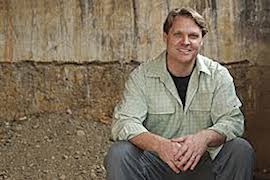
David Griswold, founder of Sustainable Harvest Coffee and the next guest of the WDI Global Impact Speaker Series, will discuss the issue of sustainability at 5 p.m. on Wednesday, Nov. 4 in Room R1210 at the Ross School of Business. The talk is free and open to the public.
Griswold’s talk, “Do Consumers Really Care About Sustainability? Perspectives from Sustainable Harvest Coffee,” will reflect on the growing business challenge of creating authentic and scaled commodity supply chains that are sustainable and can impact the growers and rural communities in the developing world. In times of rapid industry consolidation, venture capital money, and acquisitions in the specialty coffee industry, Griswold wonders if customers really care about sustainability.
Griswold was a guest at WDI in 2013 and sat down then for a video interview with WDI Senior Fellow Ted London. Watch the interview here.
“David has a fascinating story to tell,” London said. “He is an entrepreneur who has built a $50 million business that is primarily focused on sourcing coffee from small holder farmers in developing countries. Sustainable Harvest is a BoP enterprise that is sustainable at scale, which is not an easy feat. But despite all his efforts, David still wonders how much the concept of sustainability really matters to his customers.”
Ted London, vice president and senior research fellow of the Scaling Impact Initiative at the William Davidson Institute, took the stage twice at the international Social Capital Markets (SOCAP) conference, which ran Oct. 6-9 in San Francisco.
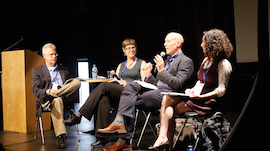
He gave a lecture on SOCAP TV about the Base of the Pyramid promise – generating business value while alleviating poverty – and how delivering on that promise requires the creation of a “partnership ecosystem.” Watch the lecture here.
London continued that theme later in the conference, leading a cross-sector panel discussion about the intersection of impact investing and inclusive business. Watch the panel discussion here.
“We’re all seeking impact at scale,” London said, starting the discussion. “There are a lot of communities and efforts out to do that. And it’s becoming increasingly apparent that there’s a real opportunity to maybe interact more and to cross boundaries more and from an enterprise perspective, to figure out how to build more robust partnerships and partnership ecosystems to make things happen.”
London’s panel represented three distinct segments in that ecosystem:
London summarized that those involved in impact investing and inclusive business should retain their humility as they figure out ways to work together, learning from successes as well as failures: “We have to always think about building the enterprise or the institute of today, but also, how do we build the community of tomorrow?”
WDI Publishing recently released a new case study on the evolution of a global cross sector partnership between Walmart and the United States Agency for International Development (USAID). The case explores the successes, challenges, and lessons learned in the 15-year collaboration between the two organizations.
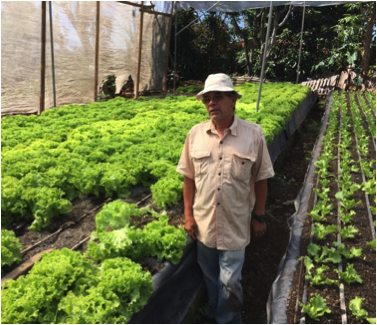
“Walmart and USAID: The Evolution of a Global Cross-Sector Partnership,” focuses on partnerships that sought to engage smallholder farmers in the developing world, and highlights examples from Honduras, Guatemala, Rwanda and Bangladesh. It explores the ways in which these collaborations came about, how they were supported by the partners, and the level of success achieved as measured by Walmart, the Walmart Foundation, and USAID.
The case also identified lessons learned for the future of the Walmart/USAID collaboration, and insights that may apply to the development of partnerships for development more broadly.
A team of graduate student from the Ross School of Business and the Ford School of Public Policy assisted with researching and writing the case with faculty leadership from WDI Senior Fellow Ted London, and management support from WDI Scaling Impact Research Manager Colm Fay.
“This work explores how Walmart and USAID have sought to build a global alliance based on mutual value creation,” London said. “A key goal of the project was to develop a case that can help the partners themselves understand what had happened over the past 15 years and will help catalyze strategic thinking for both organizations.”
The case is designed for use in graduate, undergraduate, and executive education programs taught in university business schools. It can be used within disciplines, such as public policy, public administration, public health, development studies, natural resources and other domains interested in understanding the opportunities and challenges of building cross-sector collaboration that generates both social impact and business outcomes. The case could also be used by independent training organizations, or for training programs within multinational corporations or public sector organizations, especially those focused on positive global social impact or corporate social responsibility.
The case is available free of charge from WDI Publishing here.
The WDI-run blog site NextBillion also wrote about the case and its development. Read more here.
The Women Thrive Conference explores how training women and improving their livelihoods can address gender inequality.
Impact assessment has been part of international development for more than half a century. However, debate continues on its value and varying methodologies. Heather Esper and Yaquta Kanchwala Fatehi of WDI’s Performance Measurement Initiative weigh in on the subject in a special issue of Thinkers magazine focused on the Base of the Pyramid.
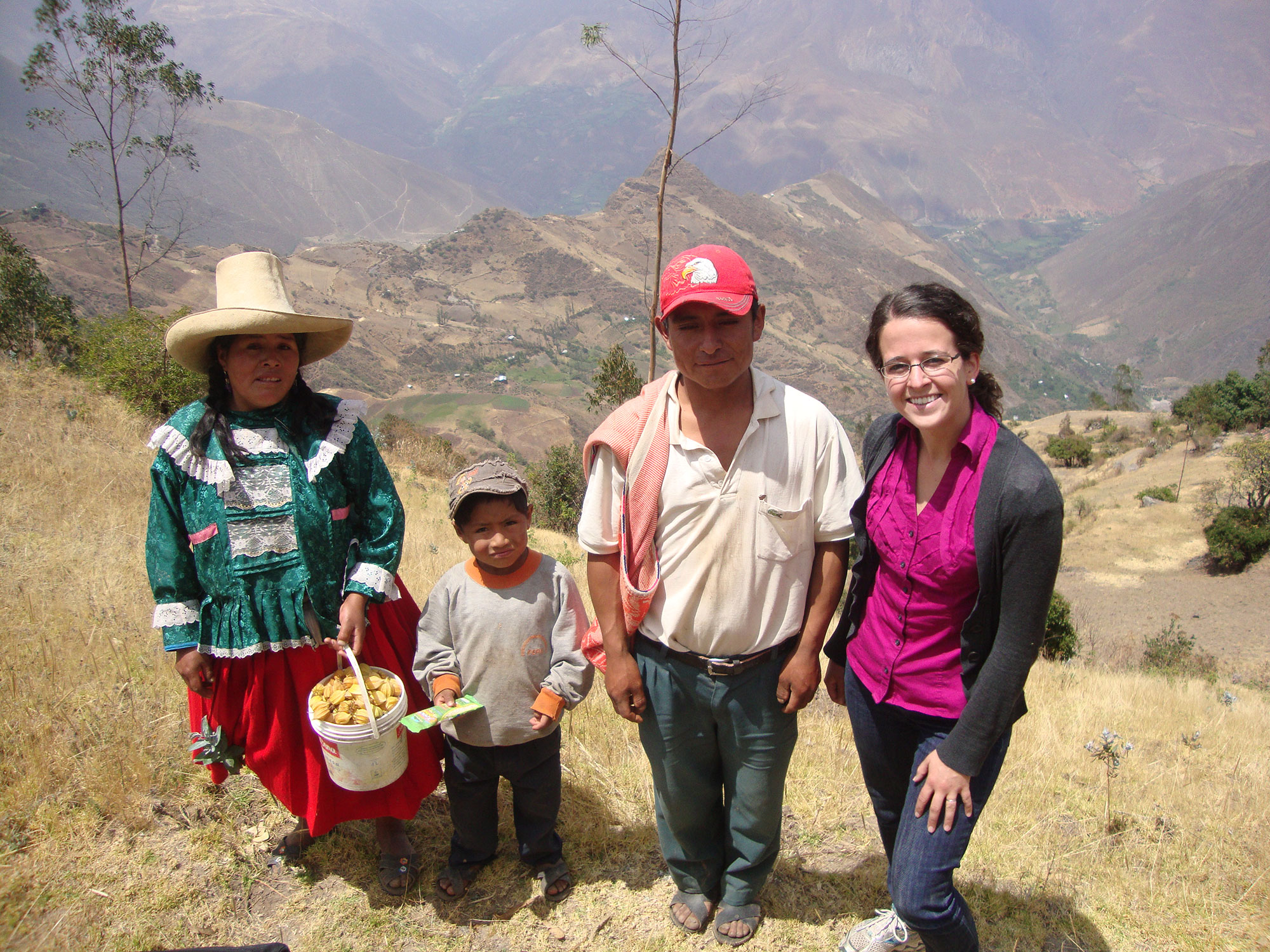
Esper and Fatehi wrote that part of the problem is that the debate gets bogged down in the different terms people use – assessment, evaluation, measurement. But whatever it is called, the authors argue that it is necessary so that organizations understand how well they are doing in their mission.
Read the article here.
Thinkers is a quarterly thought leadership magazine with articles, interviews, and thought pieces from the brightest thinkers in the areas of economics and governance; philosophy and literature; science and technology; and management. It has a total readership of more than 40,000.
The latest issue of Thinkers was published in conjunction with the BoP Global Summit July 16-17 in Burlington, Vermont. Esper, Program Manager for Performance Measurement, led a working group at the summit on “Evaluating the State of Assessment: Focusing on Value Creation.” It highlighted tools and methodologies businesses can use at various stages of growth to understand their impact; and using this data to inform decision-making in order to increase the value they create.
WDI President Paul Clyde recently wrote an article for the Stanford Social Innovation Review (SSIR) promoting educational models that tie pedagogy to business that can provide revenue and give students the chance to learn job skills.
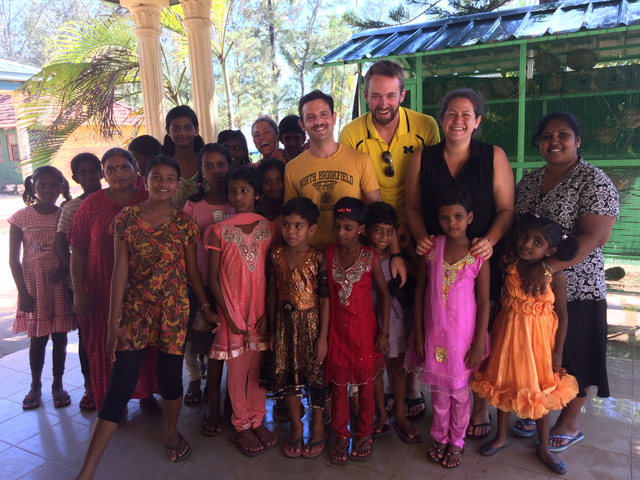
Clyde said technological advances are very popular in education, as they should be, because they add new, exciting dimensions to learning. But in the race to find and use the latest and greatest technology, Clyde warns not to overlook lower-tech educational experiences that can provide revenue and give students practical business exposure.
Read the article here.
One of the examples Clyde discusses is the Grace Care Center, an all-girls orphanage in Sri Lanka that has been the subject of a Ross School of Business student project and is currently hosting a WDI summer intern. The Ross student team studied whether a hotel on the orphanage site – located on a beautiful beach – could generate revenue for the orphanage while also giving the girls the opportunity to develop job skills in the tourism and hospitality industries.
WDI intern Michelle Gross from Ross and the School of Natural Resources and the Environment is at the orphanage this summer focus on strengthening its financial sustainability by helping the organization develop a business model for generating income to reduce its dependency on international donors and traditional fundraising. She is developing a business plan where tea exports from Sri Lanka will be sold by Ann Arbor, Michigan-based Zingerman’s, a world-renown delicatessen and gourmet food shop. A portion of the proceeds will go toward funding the education of girls at the orphanage. In collaboration with the co-founders of Zingerman’s and VeAhavta, tea farmers, local Sri Lankans, and Gross will work to establish exportation agreements. The young women from the orphanage will not only benefit from the proceeds of this high- quality product, but will also learn business management skills as they help maintain the quality and consistency of the product exported to Zingerman’s.
Ted London, vice president and senior research fellow for WDI’s Scaling Impact Initiative, was recently interviewed about co-creating value with the base of the pyramid (BoP) for an article in the annual magazine of the Dutch-based non-profit organization SNV.
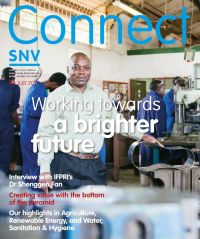
In the interview with Connect magazine, London discusses how the business approaches of the BoP can help alleviate poverty, how non-governmental organizations (NGOs) like SNV can play a role, and what the future is for the BoP. Read the Q&A here.
SNV is an international not-for-profit development organization. Its global team of local and international advisors work with local partners to equip communities, businesses and organizations with the tools, knowledge and connections they need to increase their incomes and gain access to basic services – empowering them to break the cycle of poverty and guide their own development.
Mentoring for social entrepreneurship education in the Middle East and North Africa region is on the rise, writes WDI Program Coordinator of Education Nathan Rauh-Bieri on the NextBillion.net blog.
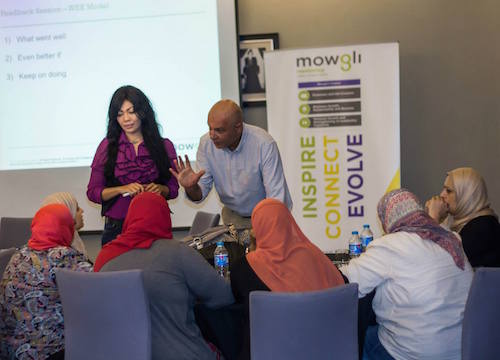
Rauh-Bieri chronicles the effort of Mowgli Mentoring, the UK-based nonprofit that looks to help entrepreneurs create new jobs in a region with 27 percent youth unemployment. Read the NextBillion article here.
NextBillion is an initiative of WDI.